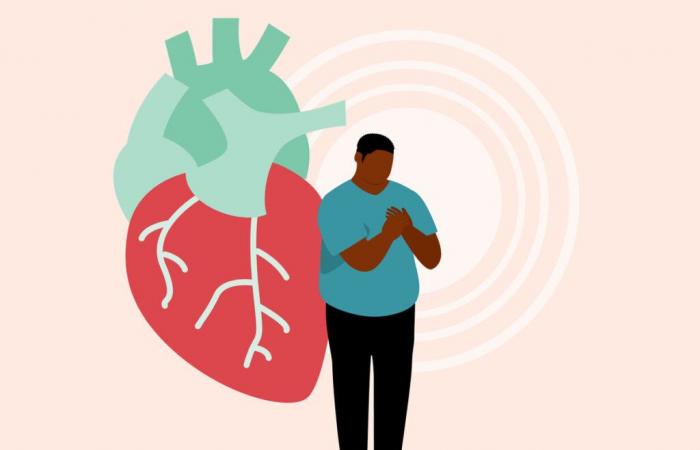Cardiovascular diseases represented 1 million hospitalizations in France in 2016. Today, it is the leading cause of death in women and the second in humans. In other words, a scourge to which many scientists seek to limit the after-effects. In a study published in the journal ResearchGate on December 3, Dr. Yann Grobs and his team discovered an enzyme that would have a regulatory role in DNA repair and gene expression. Son nom : l’enzyme ATP-citrate lyase.
Already known to intervene in the metabolism of lipids necessary for growth and repairing blood vessel wallsit could also, according to the team of scientists from the University Institute of Cardiology and Pneumology of Quebec, revolutionize the treatment and prevention of heart attacks and strokes. “What this adds is that, for patients who have problems with hypercholesterolemia or patients who have significant coronary remodeling“, we can imagine stents (prostheses which treat a narrowed artery) which will release small doses of drugs”, specifies, in a press release, Dr Yann Grobs. In addition, the inhibition of this enzyme has made it possible to improve remodeling vascular.
“It may soon be possible to reduce heart attacks, strokes, but also to slow the progression of these diseases”
These results suggest the enzyme ATP-citrate lyase as a new therapeutic target to reduce the thickening of the wall of the pulmonary or coronary artery and prevent complications coronary heart disease, such as myocardial infarction, providing promising avenues for future clinical interventions.
“This represents a major turning point in our understanding of cardiovascular disease. It may soon be possible to reduce heart attacksstrokes, but also to slow the progression of these diseases”, expresses Dr Yann Grobs.
According to estimates from the World Health Organization (WHO), 17.9 million people died from cardiovascular diseases in 2019or 32% of all deaths worldwide. Of these, 85% were due to myocardial infarction or stroke.
Health






